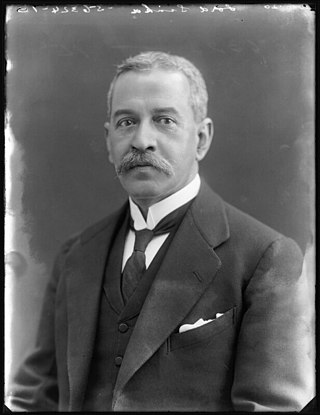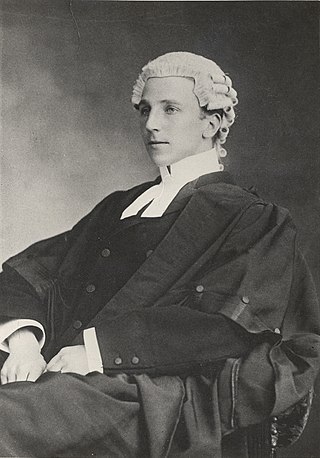Related Research Articles

Satyendra Prasanna Sinha, 1st Baron Sinha, KCSI, PC, KC, was a prominent British Indian lawyer and statesman. He was the first Governor of Bihar and Orissa, first Indian Advocate-General of Bengal, first Indian to become a member of the Viceroy's Executive Council and the first Indian to become a member of the British ministry. He is sometimes also referred as Satyendra Prasanno Sinha or Satyendra Prasad Sinha.

Sir Pherozeshah Merwanjee Mehta was an Indian politician and lawyer from Bombay. He was knighted by the British Government in India for his service to the law. He became the Municipal commissioner of Bombay Municipality in 1873 and its president four times – 1884, 1885, 1905 and 1911. Mehta was one of the founding members and President of the Indian National Congress in 1890 held at Calcutta.
The Jejeebhoy Baronetcy, of Bombay, is a title in the Baronetage of the United Kingdom. It was created 6 August 1857 for Sir Jamsetjee Jejeebhoy, a prominent Parsee merchant and philanthropist who was the first Parsi and first Indian to be knighted (1842) and the first to be made a baronet (1857). When Sir Jamsetjee Jejeebhoy was made a baronet, it was realised that the Parsee custom was for a change of names for each generation. This conflicted with the British tradition of using consistent surname for a particular baronetcy. In 1915, the Imperial Legislative Council passed the Sir Jamsetjee Jejeebhoy Baronetcy Act, providing that all the male heirs should take these names and no other. Similar provision was made for subsequent Parsee baronets. All holders of the title relinquish their own names and assume that of the first Baronet.

The Imperial Legislative Council (ILC) was the legislature of British India from 1861 to 1947. It was established under the Government of India Act 1853 by providing for the addition of six additional members to the Governor General Council for legislative purposes. Thus, the act separated the legislative and executive functions of the council and it was this body within the Governor General's Council which came to known as the Indian/Central Legislative Council. In 1861 it was renamed as Imperial Legislative Council and the strength was increased.

Sir Jehangir Hormasji Kothari,, was a Parsi businessman, merchant and a prominent philanthropist from Karachi during British colonial rule. Today, he is best remembered for the Jehangir Kothari Parade, an elevated sandstone walkway used to walk to Clifton Beach on the Arabian Sea.

The Oriental Club in London is an exclusive Private Members’ Club established in 1824. Charles Graves describes it as fine in quality as White's but with the space of infinitely larger clubs. It is located in Stratford Place, near Oxford Street and Bond Street. Based in one of the most elegant buildings in London, the Oriental Club is one of the most prestigious members’ clubs in the world.

Sir Thomas Joseph Strangman QC was a British barrister who spent much of his career in India.
The Age of Consent Act, 1891, also known as Act X of 1891, was a legislation enacted in British India on 19 March 1891 which raised the age of consent for sexual intercourse for all girls, married or unmarried, from ten to twelve years in all jurisdictions, its violation subject to criminal prosecution as rape. The act was an amendment of the Indian Penal Code and Code of Criminal Procedure, Section 375, 1882,, and was introduced as a bill on 9 January 1891 by Sir Andrew Scoble in the Legislative Council of the Governor-General of India in Calcutta. It was debated the same day and opposed by council member Sir Romesh Chunder Mitter on the grounds that it interfered with orthodox Hindu code, but supported by council member Rao Bahadur Krishnaji Lakshman Nulkar and by the President of the council, the Governor-General and Viceroy Lord Lansdowne.

Sir James Rivett-Carnac, 1st Baronet was an Indian-born British statesman and politician who served as Governor of the Bombay Presidency in British India from 1838 to 1841.
Dr. Sir Ervad Jivanji Jamshedji Modi (1854–1933), who also carried the title of Shams-ul-Ulama, was a prominent Zoroastrian Parsi-Indian priest, scholar and community leader in Bombay. One of "the most decorated priests in history", he wrote over 70 books, produced over 120 scholarly papers on Zoroastrian history, traveled and researched into Zoroastrian affairs extensively and was instrumental in organizing the Parsi community in India. During his lifetime he had been called "the greatest living authority on the ancient history and customs of the Parsis." He created a facsimile edition of the Middle Persian legal treatise, Mādayān ī Hazār Dādestān in 1901.

Manockjee Cursetjee (1808–1887) was a Parsi businessman and judge from Bombay, remembered as a reformer and proponent of female education.
Edward Yerbury Watson was an English entomologist who specialised in Lepidoptera most notably Hesperiidae.
Following the final collapse of the Mughal Empire in 1857 and the proclamation of the British Indian Empire, the British continued to maintain and recognise many of the old Mughal and Hindu styles and titles, introducing a compound honours system which awarded those titles along with British noble and aristocratic titles and knighthoods. Uniquely amongst the countries under British dominion, India was the sole country where British hereditary titles were conferred upon British subjects not of European ancestry. All British titles and honours became obsolete after the formation of the modern Republic of India in 1950, though they continue to be recognised by the British government. The Portuguese gave titles and created coats of arms for its Goan citizens from the early 1700s, both Hindu and Indian Christian. These titles however lost their recognition after the Portuguese Revolution and start of the First Portuguese Republic in 1910.

The Advocate-General of Bengal was charged with advising the Government of the British administered Bengal Presidency on legal matters. The Presidency existed from 1765 to 1947. Prior to 1858, when it was administered by the East India Company, the Advocate-General was the senior law officer of that company but was also the Attorney-General of the Sovereign of Great Britain.
The 1897 New Year Honours were appointments by Queen Victoria to various orders and honours to reward and highlight good works by members of the British Empire. They were published on 1 January 1897.

Mithan Jamshed Lam (1898–1981) was an Indian lawyer, social activist and the Sheriff of Mumbai. She was the first Indian woman barrister and the first Indian woman lawyer at the Bombay High Court. She was a member of the All India Women's Conference and served as its president in 1961–62. The Government of India awarded her the third highest civilian honour of the Padma Bhushan, in 1962, for her contributions to society.
General Sir Thomas Westropp McMahon, 3rd Baronet, was a senior British Army officer.
The Sheriff of Madras was an apolitical titular position of authority bestowed for one year on a prominent citizen of Madras. The post was abolished in 1998.
The Parsi law is the law governing the Parsi Zoroastrian community of India. Parsi law is largely derived from nineteenth century's legal tradition. In particular, the main legislative texts of the Parsi law are:
References
- ↑ Asiatic Journal, Volume 9. p. 1819.
- ↑ The Asiatic Journal and Monthly Register for British and Foreign India. p. 750.
- ↑ The Asiatic Journal and Monthly Register for British and Foreign India. p. 750.
- ↑ Annals of the Oriental Club, 1824-1858 - Page 97
- ↑ Dictionary of Indian Biography. p. 448.
- ↑ "The South Australian Register, 16th December 1865". Trove. Retrieved 28 October 2015.
- ↑ Dictionary of Indian Biography. p. 448.
- ↑ "Page: Men-at-the-Bar.djvu/64". Fosters Hand List. Retrieved 28 October 2015.
- ↑ The India List and India Office List. p. 608.
- ↑ "Edinburgh Gazette" (PDF). Retrieved 28 October 2015.
- ↑ "No. 25320". The London Gazette . 22 February 1884. p. 895.
- ↑ "November 18, 1893 The Colonies and India from London". Newspapers. p. 10. Retrieved 28 October 2015.
- ↑ The India List and India Office List. p. 93.
- ↑ Alumni Cantabrigienses: A Biographical List of All Known Students ..., Volume 2. p. 63.
- ↑ "No. 29186". The London Gazette . 8 June 1915. p. 5528.
- ↑ Alumni Cantabrigienses: A Biographical List of All Known Students ..., Volume 2. p. 63.
- ↑ Sharafi, Mitra. Law and Identity in Colonial South Asia: Parsi Legal Culture, 1772–1947. p. 111.
- ↑ "Legal appointments (1933)". The National Archives. Retrieved 28 October 2015.
- ↑ Sharafi, Mitra. Law and Identity in Colonial South Asia: Parsi Legal Culture, 1772–1947. p. 102.